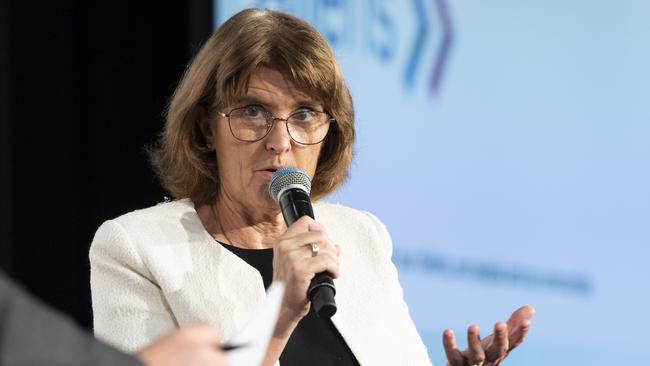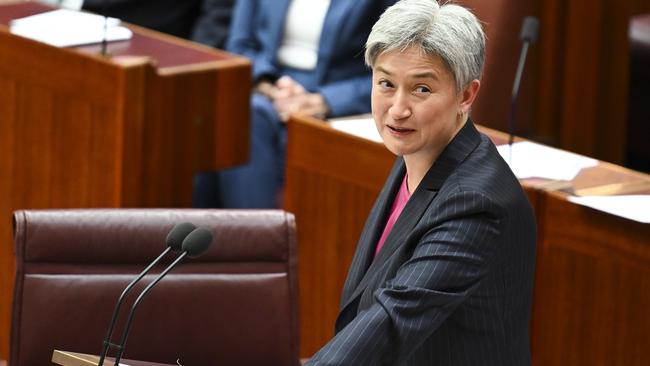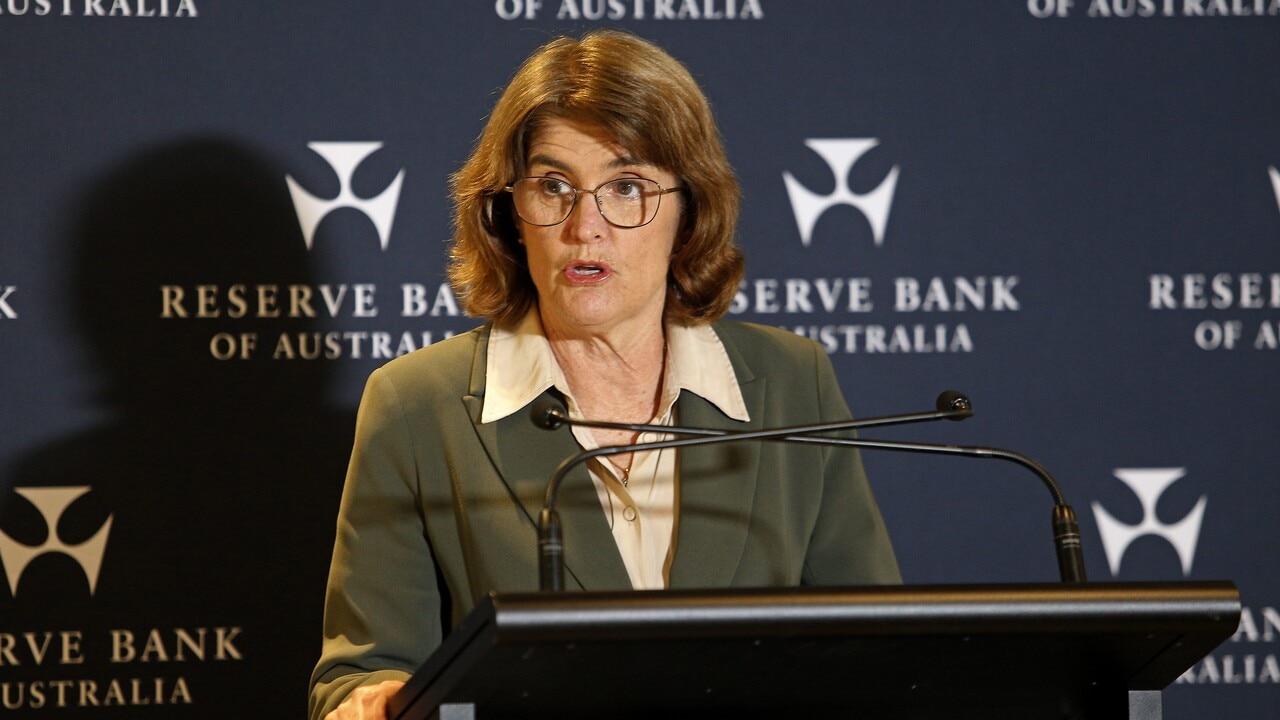Retail surge, ‘Wong factor’ could complicate RBA rate decision
The recent boom in retail sales will complicate the RBA’s rate decision on Tuesday and longer-term, Foreign Minister Penny Wong’s reckless UN stance could also have an impact.

Reserve Bank governor Michele Bullock, deputy governor Andrew Hauser and the rest of the board were always set for a difficult meeting this week. But the November boom in retail sales makes it harder.
During the meeting, Bullock, Hauser and the board will receive reams of Treasury and Reserve Bank figures showing the economy is stagnating, with business naturally curtailing investment on the back of the government’s 700 pages of industrial relations legislation and its high-cost energy policies.
This puts the pressure on the Reserve Bank to cut interest rates.
But the official figures will not include the fact that non-food retail sales in large stores boomed in November. December is also very strong.
It will be some weeks before the November boom hits the official figures.
But the currency traders have their finger on the retail pulse and may smash the dollar if the Reserve Bank board does not recognise the November event.
Accordingly, a rate cut in December (and February) will be seen by currency traders as Australia’s central bankers trying to win government favours.

Meanwhile, as I will explain below, Australia and the Reserve Bank must brace for the interest rate impact of what Trump may have in store for Australia, given that his close ally, Israel’s Prime Minister Benjamin Netanyahu, blamed the Melbourne synagogue attack on the “extreme anti-Israel” stance of the Albanese government. Without mentioning Australia’s foreign minister Penny Wong, Netanyahu declared: “Anti-Israel sentiment is antisemitism,” The so-called “Wong factor” now threatens Australia’s long-term bond rates.
Back to the local front. If the RBA fact-gatherers have remained isolated in their Martin Place bunker they will be unaware of what is happening in the real world and they will be incorrectly telling the board that Australia is in a subdued retail spending pattern.
Obviously the Reserve Bank’s main interest rate criteria is inflation but the overall state of the economy is part of their agenda. The government is pointing to the official downturn figures to urge them to lower rates, looking to use any lower rates as a springboard for their 2025 election campaign.
The vast majority of the goods bought by Australians are imported at prices set in US dollars.
At the moment there does not appear to be a scramble to increase retail prices in response to the boom, partly because China has sharpened its pricing pencil.
But the Chinese make it very clear that Australian retailers must absorb the cost if the local dollar falls against the US dollar.

Accordingly a lower Australian dollar brought on by lower rates will boost prices, given the strong consumer demand. Of course the reverse applies.
The retail spending boom is very much a creation of federal and state governments’ spending sprees and the fact that many government-linked employees have received big wage rises.
The unions, via Woolworths, look to spread the government wage rises to the private sector, including a solid dose of lower productivity.
Of course if rates are maintained there will be great anger in the general community, and governments will try to direct that anger towards the Reserve Bank rather than the real culprits – themselves.
Because of the looming election, the pressure on the Reserve Bank board will be intense.
But being a Reserve Bank director is not an easy job, particularly when you are faced with governments that have embraced exactly the reverse policy to the one Reserve Bank is looking to .
And no other western country has 700 pages of industrial relations legislation designed to lower productivity and increase costs, with an energy program that Frontier Economics estimates will cost $660bn over the next 25 years. It will send power prices through the roof.
Interest rates must stay high in such an environment or we run the risk of a run on the currency.

Now for the “Wong” factor.
During the week I was yarning to Tom Boyle of London-based investment manager Atlantic House Group, who points out that Trump has been adamant that Europe much more for its defence requirements.
And the political events in France have alerted European governments that raising money via higher taxes and/or expenditure cuts is politically dangerous.
Accordingly, most European nations will meet the new Trump obligations via long-term borrowing which will push up long-term European interest rates, especially as the institutions still remember the recent big losses incurred on such bonds.
Boyle does not comment on our US relationship but Australia as a close ally of the US may have escaped the Trump defence expenditure increase requirements destined for Europe.
But Foreign Minister Penny Wong’s reckless United Nations stance at a crucial time may have caused Australia to be placed in the European basket, with Trump demanding a big increase in Australian defence expenditure.
There is considerable waste in Canberra but, like Europe, we would probably go into long-term borrowing and push up long-term rates to fund the additional defence requirement.
When you add the potential long-term bond “Wong factor” to the conventional short-term currency-related interest rates forces that influence the Reserve Bank, the Australian central bank will not have a lot of flexibility.






To join the conversation, please log in. Don't have an account? Register
Join the conversation, you are commenting as Logout